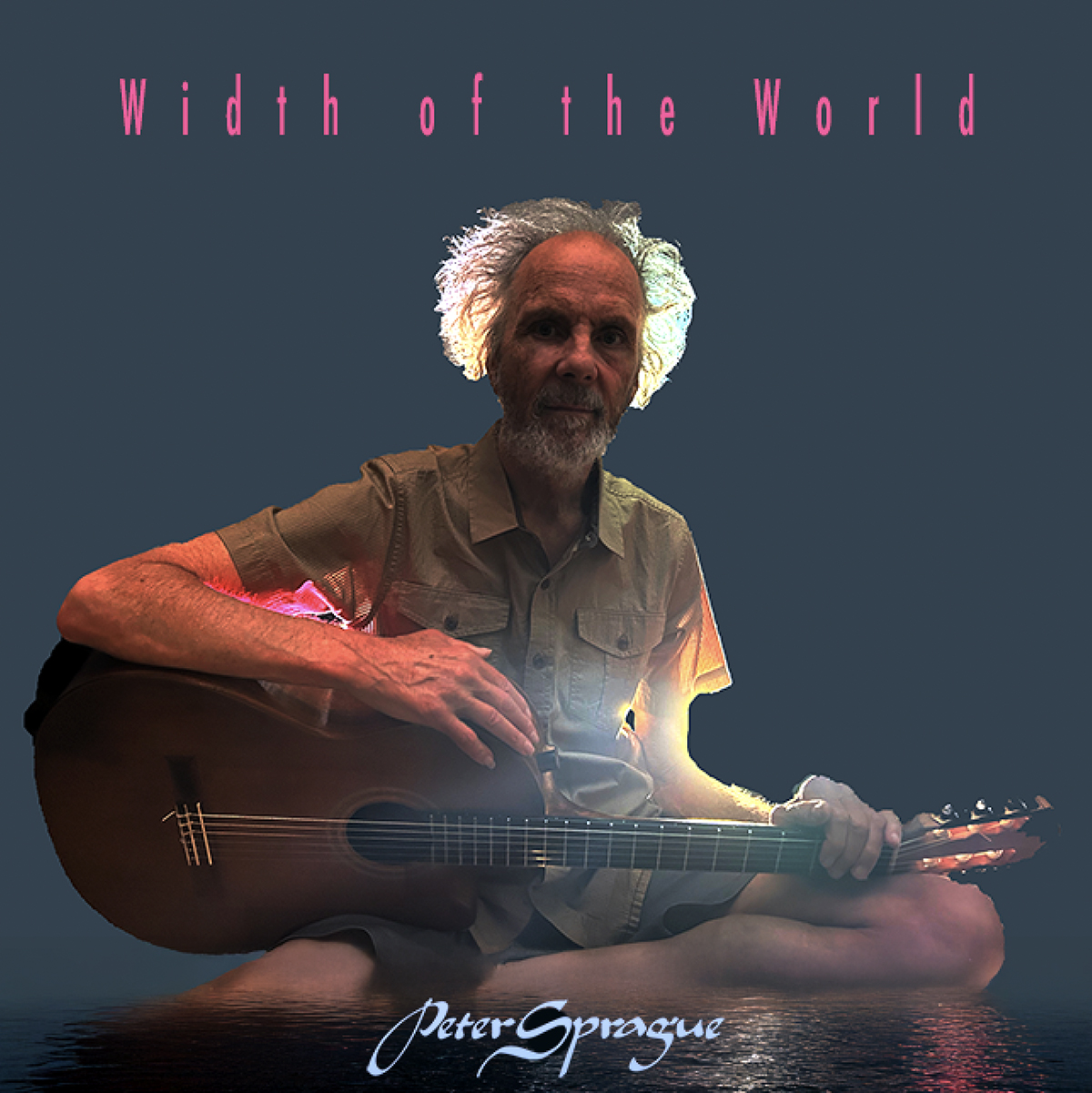CD Reviews
PETER SPRAGUE: Width of the World

Local guitarist Peter Sprague earned most his reputation playing jazz at a world-class level. But his musical interests are far ranging; recent recordings have found him immersed in Brazilian music and early hard rock.
He also recorded two albums with his string consort that melded jazz and classical, as well as another similar outing with his string trio.
With his latest release, Width of the World, he’s fully immersed in the classical realm in a symphonic setting. Yet if this recording is only just now being released, it’s a project with some roots—but let’s let Peter himself explain it, from an email he sent to the Troubadour in August:
“Back 20 years ago I composed a guitar concerto for the San Diego Symphony. We played it with very little rehearsal, and it didn’t really come out the way I wanted it to. So, here we are 20 years later, and I’ve spent the last two months working out the parts using a sampled orchestra but adding in real string players, a real trumpet part, real bass and drums and guitar parts, and a real bassoon solo.”
As Frank Zappa to Paul McCartney discovered, composing for an orchestra is a very different animal from rock or pop. Sprague himself admits as much in a blurb he wrote for the album:
When you compose for an orchestra, you need to carefully consider the “balances” of timber and volume between the instruments. For example, if you have the flutes carrying the melody, because they aren’t that loud, you need to tame down the rest of the orchestra so that they can be heard. For my composing demo, when I faced a situation like this, I simply turned the flute volume up. This doesn’t work in a real orchestra, there are no volume knobs to turn up when you need something louder.
So how does he do on his re-do?
The album opens with the title track, which itself opens with the strings playing a very relaxed theme. Then the low-end brass comes in in response, further developing the melody before handing it off to the woodwinds. The theme is restrained, yet still grand and arching—and just as this listener was wondering where it might lead, a series of short, quickly interrupted passages on strings called to mind Copland. Following this, Sprague’s guitar makes its first appearance before another series of short passages then leads back into a reprisal of the opening. The second section of the song finds Sprague’s guitar front and center (which was likely the point of the original consignment).
It’s a beautiful piece, with effective use of the different instrumental voices. In its use of bouncing strings and flutes behind the main melody, the second section reminds a bit of the Appalachia projects that Yo-Yo Ma, Mark’Connor, and Edgar Meyer did, but with a full symphony (or at least a digital version).
“Morning in Marrakesh” is played by two guitars and is as much jazz as classical. It’s a nice little tune, but could have come from any of Sprague’s other releases over the last 45-plus years.
“Bachianas a Flor” returns to a symphonic setting, with Ryan Simmons taking the early melodic lead on bassoon. The strings follow up his passage with a dark, swirling noir sound, and then Steve Dillard’s clarion trumpet cuts through like a fog light before the woodwinds come back in. The shifting dynamics, the contrasting moods create a propulsive energy. Then drummer Duncan Moorecon a standard trap set—leads into a jazz passage featuring Sprague’s guitar front and center. Oddly, the transition from symphonic to jazz combo isn’t jarring. Sprague makes it utterly logical. Just as seamlessly it transitions back into the full symphony for a flag-waver of a finale.
At just over two minutes, “The Joni Element” is a multi-threaded bit of string quartet and chorus that serves as a nice transition to the next extended composition.
The album closes out with “The Poet.” It’s a more modern-sounding song than the rest of the album, although it largely avoids the unstructured dissonance of so much of what passes for modern classical music. And Sprague’s Spanish-inflected lead acoustic guitar playing is absolutely gorgeous, Mack Leighton’s bowed bass framing his lead perfectly.
While this may not be a “typical” Peter Sprague album (although that definition widens with each subsequent release), it’s an interesting, rewarding, and enjoyable foray into one of the most fertile musical imaginations to come out of San Diego.
And with the title track, Sprague has written one of the most memorable songs of his ongoing career.










